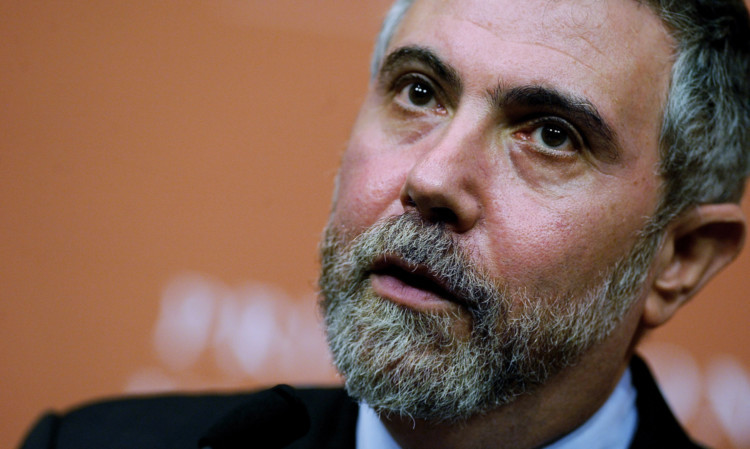A world-leading economist has warned the SNP’s monetary plans for an independent Scotland are “deeply muddle-headed”
Nobel-prize winner Paul Krugman even claims a slump in the Scottish economy could lead to workers fleeing south of the border for work, leaving “a diminished population to bear the fiscal burden of caring for the elderly”.
Mr Krugman, who previously praised Dundee’s Verdant Works as a “nifty museum” in his New York Times column, said it is time for the SNP and the Yes campaign to “get real about money.”
Although Mr Krugman, who was awarded the Nobel prize for economics in 2008, says Scotland may end up paying less tax as a result of North Sea oil revenues, he warns that without a formal currency union, Scotland would be even more vulnerable to an economic crisis than countries such as Portugal and Greece.
“I understand the frustration of Scots tied to David Cameron’s England,” he wrote.
“Whether it’s overall a good idea or not, however, independence would have to rest on a sound monetary foundation.
“And the independence movement has me worried, because what it has said on that crucial subject seems deeply muddle-headed.”
Although Mr Krugman says there is nothing to stop Scotland using the pound, he said such a system is unworkable in the long-term.
“The lesson of the euro crisis, surely, is that sharing a common currency without having a shared federal government is very dangerous,” he said.
“In fact, Scotland-on-the-pound would be in even worse shape than the euro countries, because the Bank of England would be under no obligation to act as lender of last resort to Scottish banks.”
Mr Krugman added that if Scotland joins the EU, then it may be unable to retain workers when the economy is struggling.
“What we’re seeing in places like Portugal is large-scale emigration of young workers, leaving a diminished population to bear the fiscal burden of caring for the elderly,” he said.
“Again, I can understand Scots’ grievances. But if they really want to do this, they had better get real about money.”
Better Together leader and former Chancellor Alistair Darling said: “It’s quite clear a currency union is off the table.”
A Yes campaign spokesman added: “The Fiscal Commission Working Group, which includes two Nobel Laureates, listed a range of viable currency options in its report to the Scottish Government but recommended sharing the pound as the best of these.”
